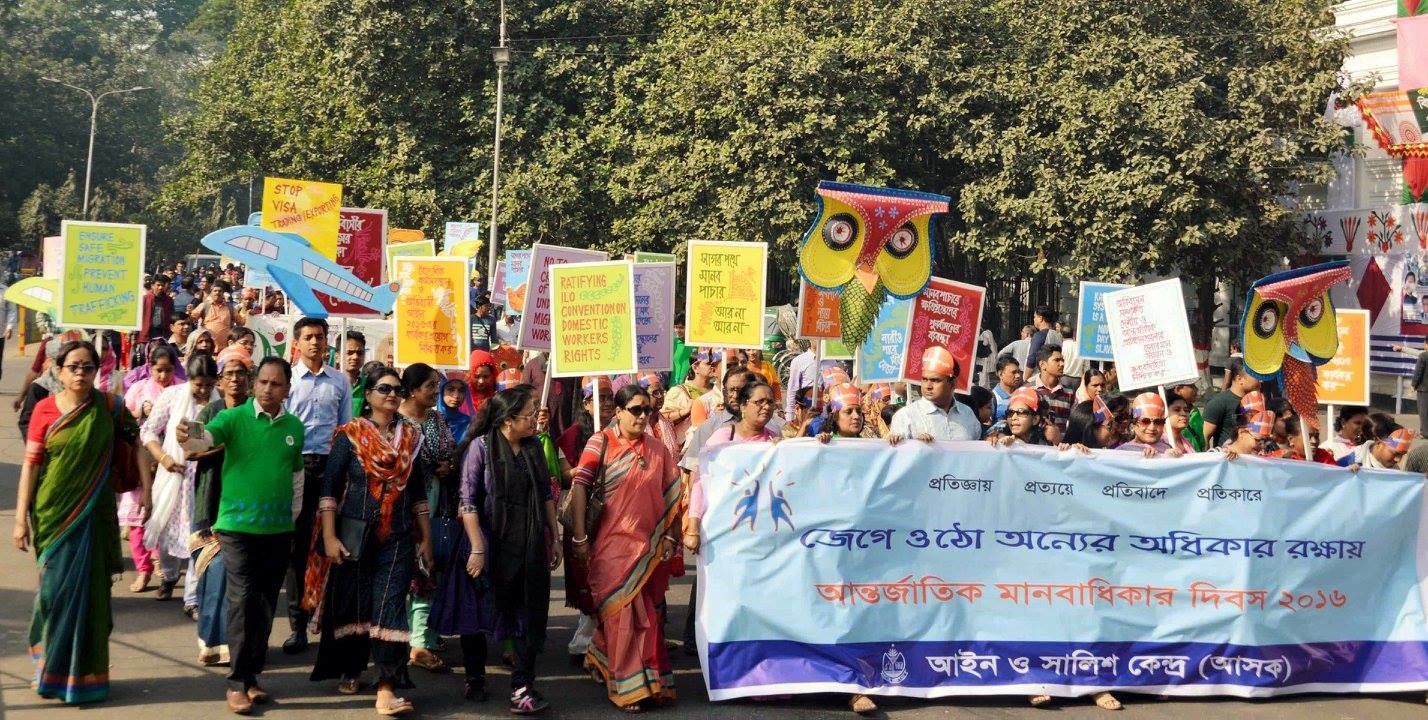Solidarity across Borders and Movements on International Migrants Day
International Migrants Day 2016

18 December, International Migrants Day, comes towards the end of what has been a particularly difficult year for migrants’ rights. 2016 broke a number of devastating records, and has seen the growth of some worrying trends. There are more people on the move now than ever before. The number of refugees, asylum seekers and displaced people hit a record high of over 65 million people, or one in every 113 people on Earth. Across the globe, anti-migrant, xenophobic rhetoric has been espoused by a growing right wing political establishment, finding new strength in Europe and in Trump’s election in the US. 2016 was the deadliest year yet in terms of number of deaths in the Mediterranean, while new EU agreements with Turkey and Afghanistan see the EU renege on commitments to asylum seekers and refugees, and aim to deter and return migrants at risk. The international rights protection framework appears to be weakening.
It has been called a ‘migrant crisis’; however, the ‘crisis’ can be more accurately attributed to the response to migration that we are seeing from governments. ‘Only a crisis - actual or perceived - produces real change. When that crisis occurs, the actions that are taken depend on the ideas that are lying around’, wrote Milton Friedman. What a policy response to the current ‘crisis’ will look like is at the moment up in the air.
This year has already seen some shifts in the international governance of migration. The ‘New York Declaration’, agreed at the UN in September, set out a plan to create two ‘Global Compacts’ - one on Refugees, and another on Migrants, over the course of two years, to be negotiated by governments and concluded by the end of 2018. These Global Compacts aim to set out responsibilities to international migrants, and are an important element of framing what international migration policy will look like in the future.
Thus 2017 will be an important year in which civil society must find a way to advance humane migration policies in the Global Compacts. Last week, GAATW, along with hundreds of civil society representatives from across the globe met in Dhaka, Bangladesh ahead of the Global Forum on Migration and Development, an annual international, state-led meeting on migration. Though the GFMD refuses to allow the meaningful participation of civil society in their discussions, the days preceding it were an important opportunity for migrant rights organisations to discuss what migrants need from the Global Compacts, plan our collective advocacy efforts towards states and build alliances across borders.
A number of key points emerged from five days of engaged, fruitful discussions between CSOs:
- There are existing human rights standards and labour protection frameworks that can and should be applied to migration, and new mechanisms must not roll back on international human rights standards. The New York Declaration unfortunately contains some worrying indications that States may be attempting to weaken protections for child migrants.
- The Global Compacts must include binding commitments to address the root causes of forced displacement, and the human rights and humanitarian needs of migrants. While an urgent response is needed, what's all the more important is that the governance decisions that are made today address not only urgent situations, but structural factors that are pushing people into migration, including unsafe migration.
- Migrants must be involved in the processes that affect their lives. Support by States for meaningful and sustained involvement of migrants, trade unions, and civil society organisations in the processes at regional and international levels is needed, particularly where their voices have been formally excluded, such as in the GFMD.
- Women are and must be recognised as agents of change. Women migrants, who make up nearly 50% of labour migrants, are often discussed in terms of vulnerability only. The vulnerabilities of women in the migration process are rooted in the policies that close borders and prevent social inclusion, both in countries of origin and of destination. States need to recognise the importance of laws and policies that ensure gender equality when considering how to address human trafficking.
- Two-tiered economic systems in countries of destination that differentiate between migrant workers and citizens in terms of pay and access to social protections need to be eliminated. States must ensure that migrants have access to social security and labour rights in both countries of origin and destination, and can also access justice mechanisms to adjudicate these rights.
On this International Migrants Day, GAATW expresses her solidarity with all migrants and her intention to work across borders and across social justice movements throughout 2017 to ensure that the current ‘crisis’ can produce humane, rights-based responses to the needs and desires of all migrants.

